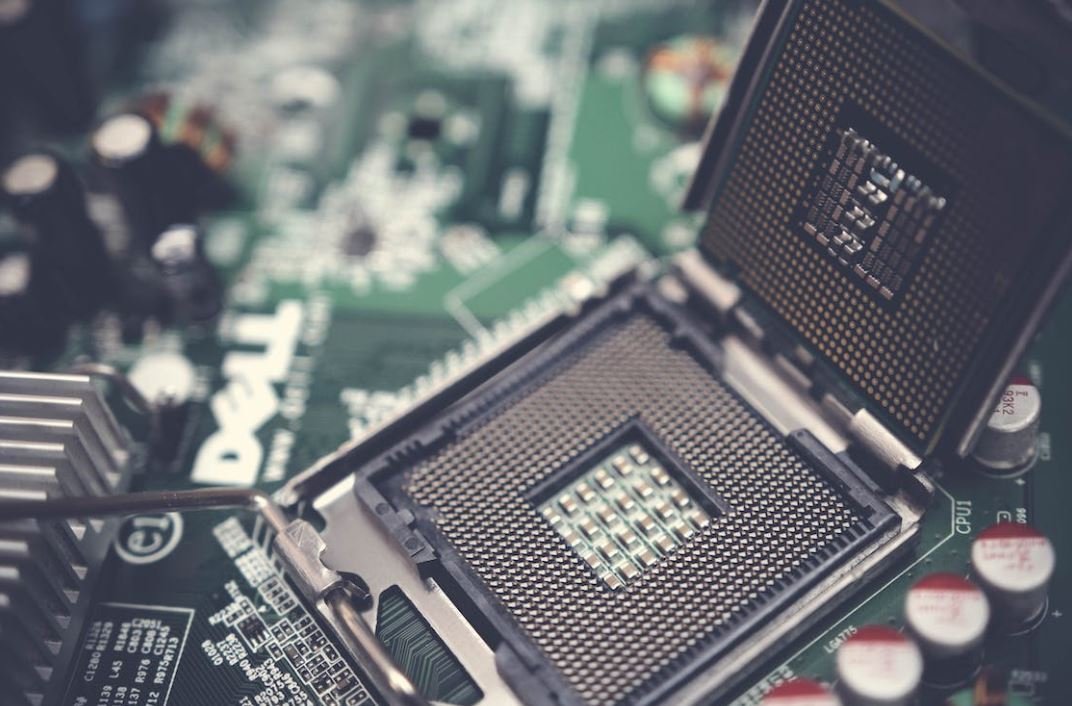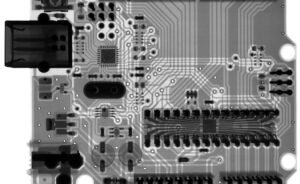AI Retail Store Design
Artificial Intelligence (AI) is revolutionizing the retail industry, and one major area where its impact is being felt is in store design. Retailers are leveraging AI technologies to enhance the customer experience, optimize store layouts, and improve operational efficiency. This article explores how AI is transforming retail store design and the benefits it brings to both retailers and customers.
Key Takeaways:
- AI is revolutionizing retail store design by optimizing layouts and improving operational efficiency.
- AI-powered technologies, like smart shelves and virtual reality, enhance the customer experience.
- Data-driven insights from AI algorithms help retailers make informed decisions in store design.
Enhancing the Customer Experience
AI-powered technologies such as smart shelves and virtual reality have the potential to transform the customer experience. Smart shelves equipped with sensors can track inventory levels in real-time, ensuring products are always available and reducing out-of-stock situations. *Virtual reality technology allows customers to visualize and try products in a virtual setting, creating an interactive and immersive shopping experience.
Optimizing Store Layouts
AI can analyze customer traffic patterns and behavior within the store to optimize its layout for maximum efficiency. By analyzing data from cameras and sensors, AI algorithms can determine popular areas in the store, identify bottlenecks, and suggest layout improvements. *Retailers can use heat maps to visualize customer movement and strategically place products or promotions in high-traffic areas.
Data-Driven Decision Making
AI algorithms can analyze vast amounts of data collected from various sources, such as sales records, customer feedback, and social media, to provide valuable insights for store design. Retailers can make informed decisions based on these insights to improve store layouts, merchandising strategies, and product placements. *By leveraging AI, retailers can understand customer preferences better and tailor their store design to meet their needs and desires.
Benefits for Retailers and Customers
Embracing AI in retail store design offers numerous benefits for both retailers and customers:
- Increased operational efficiency through optimized store layouts and inventory management.
- Improved customer experience through interactive and personalized shopping experiences.
- Better decision making based on data-driven insights.
- Enhanced product discoverability and customer engagement.
- Higher conversion rates and increased sales.
AI Retail Store Design in Action
Several leading retailers have already integrated AI technologies into their store design:
| Retailer | AI Technology Implemented |
|---|---|
| Amazon Go | Checkout-free shopping using computer vision and sensor fusion. |
| Walmart | AI-powered robots for stock management and shelf replenishment. |
| Lowe’s | Virtual reality tool for kitchen and bathroom remodeling. |
The Future of AI in Retail Store Design
The potential applications of AI in retail store design are vast and evolving. As technology advances, we can expect to see further innovations such as personalized recommendations based on individual shopping behavior, smart mirrors that simulate virtual try-ons, and AI-powered chatbots for personalized assistance. AI will continue to enhance the retail experience, transforming the way we shop and interact with physical stores.

Common Misconceptions
Misconception 1: AI retail store design is too expensive
One common misconception people have about AI retail store design is that it is too expensive for small businesses to implement. However, this is not necessarily true. While there may be an initial investment required to integrate AI into store design, the long-term benefits, such as increased efficiency and improved customer experience, can lead to higher profits in the future.
- AI retail store design can lead to reduced labor costs
- Improved inventory management can prevent overstocking or understocking
- Enhanced personalization can boost customer satisfaction and loyalty
Misconception 2: AI retail store design replaces human interaction
Another misconception is that AI retail store design eliminates the need for human interaction in the shopping experience. While AI can augment certain aspects of the retail experience, such as providing personalized recommendations or streamlining checkout processes, human interaction remains crucial in building relationships with customers and providing exceptional service.
- AI can automate repetitive tasks, freeing up staff for more meaningful interactions
- Human interaction adds a personal and emotional touch to the shopping experience
- AI can assist employees in providing more accurate and timely information to customers
Misconception 3: AI retail store design is only beneficial for large retailers
Many people believe that AI retail store design is only suitable for large retailers with extensive resources. However, AI can benefit businesses of all sizes by improving operational efficiency and delivering a superior shopping experience to customers.
- AI can help small retailers compete with larger competitors by providing innovative solutions
- Enhanced data analytics can help businesses of all sizes make more informed decisions
- AI can automate various processes, saving time and effort for smaller teams
Misconception 4: AI retail store design is impersonal
Some individuals might assume that AI retail store design creates an impersonal shopping environment. However, AI technologies can be leveraged to enhance personalization and tailor the shopping experience to individual customers’ preferences and needs.
- AI can analyze customer data to provide personalized recommendations
- Virtual assistants powered by AI can offer personalized assistance and information
- AI can help retailers create targeted marketing campaigns that resonate with customers
Misconception 5: AI retail store design is a one-size-fits-all solution
Lastly, there is a misconception that AI retail store design follows a one-size-fits-all approach. In reality, AI technologies can be tailored to the specific needs and goals of each retailer, allowing for customized solutions that align with the brand’s identity and target audience.
- Retailers can choose and customize AI tools and technologies based on their unique requirements
- AI retail store design can be scalable and adaptable to changing business needs
- AI can be integrated seamlessly into existing store design elements and workflows

Introduction:
With the rapid advancements in artificial intelligence (AI), retailers are exploring innovative ways to transform the shopping experience for their customers. By leveraging AI technology, retailers can achieve deeper personalization, streamlined operations, and enhanced customer insights. In this article, we present 10 captivating tables showcasing the various elements and benefits associated with AI retail store design.
Table 1: Improving Customer Experience through AI Personalization
This table highlights the impact of AI in personalizing the shopping experience based on customer preferences, resulting in higher customer satisfaction and increased loyalty.
Table 2: AI-Powered Inventory Management Efficiency
By employing AI algorithms for inventory management, retailers can optimize stock levels, reduce excess inventory, and efficiently respond to consumer demand, leading to minimized costs and improved overall performance.
Table 3: AI-Powered Visual Search Technology Benefits
This table demonstrates how AI-powered visual search technology aids in product discovery, enabling customers to find desired products quickly and efficiently, thus encouraging impulse buying.
Table 4: Enhancing Security with AI-Powered Surveillance Systems
Through the implementation of AI-driven surveillance systems, retailers can enhance store security by accurately identifying potential threats, reducing theft incidents, and improving overall safety for both customers and employees.
Table 5: AI-Driven Pricing Strategies for Competitive Advantage
This table showcases how AI algorithms can analyze market trends, competitor prices, and customer behavior to dynamically adjust pricing strategies, helping retailers remain competitive while maximizing revenue.
Table 6: Revolutionizing In-Store Assistance with AI Chatbots
By integrating AI chatbots into retail stores, customers can receive instant support for their queries, enhance product knowledge, and enjoy a seamless shopping experience.
Table 7: AI-Enabled Smart Shelves for Inventory Management
This table highlights the benefits of AI-enabled smart shelves that automatically monitor product inventory levels, restock items, and provide real-time data analytics for optimal stock management.
Table 8: Optimizing Store Layout with AI-Fueled Heatmap Analysis
AI-powered heatmap analysis empowers retailers to understand customer navigation patterns, spending behavior, and optimize store layouts accordingly, improving product visibility and overall store performance.
Table 9: Leveraging AI for Demand Forecasting Accuracy
AI-based demand forecasting algorithms significantly improve accuracy, allowing retailers to forecast customer demand with greater precision, optimize inventory levels, and reduce out-of-stock situations.
Table 10: AI-Driven Recommendation Engines Boost Sales
This table demonstrates how AI recommendation engines analyze customer preferences, browsing history, and purchase patterns to deliver personalized product recommendations, boosting cross-selling and upselling opportunities.
Conclusion:
The advent of AI retail store design has brought forth a new era of shopping experiences. By harnessing the power of AI, retailers can enhance customer satisfaction, streamline operations, optimize inventory, and gain invaluable insights into consumer behavior. The tables presented in this article offer a glimpse into the vast potential AI has in revolutionizing the retail landscape, driving competitive advantage, and shaping the future of retail as we know it.
Frequently Asked Questions
AI Retail Store Design
-
What is AI retail store design?
AI retail store design refers to the use of artificial intelligence in designing and optimizing the layout, functionality, and overall experience of a retail store.
-
Why is AI retail store design important?
AI retail store design helps businesses attract more customers, improve operational efficiency, enhance customer experience, and increase sales. It allows for data-driven decisions and personalized experiences.
-
How does AI contribute to retail store design?
AI contributes to retail store design by analyzing vast amounts of data, including customer behavior, foot traffic patterns, and inventory levels. It can generate insights to optimize store layout, product placement, inventory management, and staff allocation.
-
What are the benefits of using AI in retail store design?
The benefits of using AI in retail store design include improved customer satisfaction through personalized experiences, increased efficiency in store operations, reduced costs, better inventory management, and the ability to adapt quickly to changing customer preferences.
-
How can AI be used to optimize store layout?
AI can analyze customer traffic patterns, identify hotspots, and recommend optimal store layouts to maximize customer flow, minimize congestion, and enhance overall shopping experience.
-
Can AI help in product placement decisions?
Yes, AI can analyze customer behavior, purchase history, and social media data to recommend strategic product placement. It can identify complementary products and cross-promotion opportunities, leading to increased sales.
-
How does AI contribute to inventory management?
AI can analyze historical sales data, weather patterns, and other factors to predict product demand accurately. This helps in optimizing inventory levels, reducing stockouts, and avoiding overstock situations.
-
Can AI help in optimizing staff allocation?
Yes, AI can analyze customer foot traffic, sales data, and staff performance metrics to recommend optimal staff allocation. This ensures that the right number of staff members are present in each department or area at any given time.
-
What are some examples of AI retail store design technologies?
Some examples of AI retail store design technologies include smart shelves with RFID tags, facial recognition systems, automated checkout systems, AI-powered chatbots, and virtual reality-based store simulations.
-
Is AI retail store design suitable for small businesses?
Yes, AI retail store design can benefit small businesses by helping them optimize their operations, improve customer experience, and increase sales. There are scalable and affordable AI solutions available to cater to the needs of small businesses.




